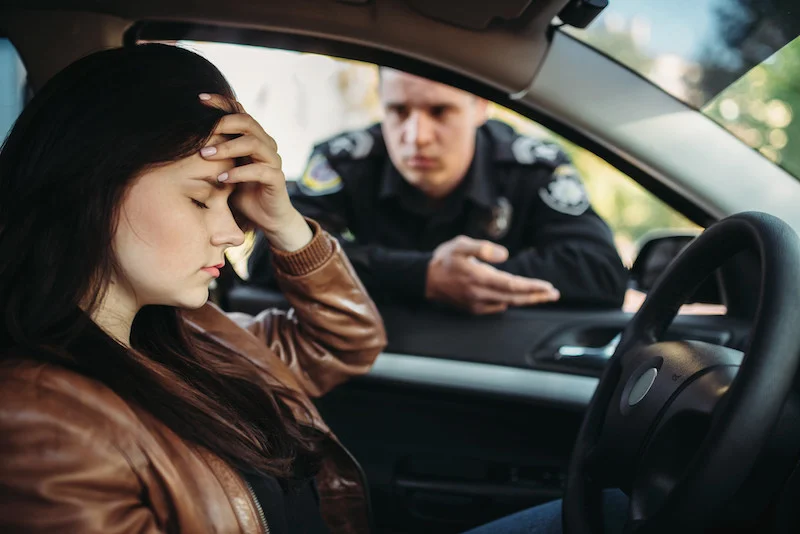Gabapentin Usage While Driving In Alameda County, California

Gabapentin is a medication prescribed to manage nerve pain and control seizures. It’s an important drug for people seeking relief from chronic discomfort. However, its therapeutic benefits come with side effects like drowsiness and slowed reflexes. These effects can significantly impair one’s ability to operate a vehicle.
While it is legal to use when prescribed, individuals taking Gabapentin must remain acutely aware of these potential impacts, especially behind the wheel. In Alameda County, driving under the influence of any substance that impairs your ability to drive safely is illegal. This includes prescription medications like Gabapentin.
Louis J. Goodman has 30 years of experience in criminal court. He is a former Deputy District Attorney in Alameda County. He is currently a criminal defense attorney in the county. If you have been arrested with a Gabapentin-related DUI and need legal advice or representation contact Louis J. Goodman for representation and protection of your rights.
What Are The Common Side Effects of Taking Gabapentin Capsules?

Understanding Gabapentin and Its Effects
Gabapentin is primarily prescribed to treat epilepsy and neuropathic pain. It can alleviate seizures and the discomfort of nerve pain. Patients taking gabapentin may notice its effectiveness in reducing the frequency of partial seizures or the intensity of pain associated with conditions like postherpetic neuralgia.
Interaction with Other Medications and Substances
When combined with other medications, particularly narcotic pain medicines, muscle relaxants, or medicines for anxiety, gabapentin may enhance sedative effects. It’s crucial to avoid drinking alcohol while on gabapentin, as alcohol can exacerbate side effects such as drowsiness and dizziness.
Potential Side Effects and Risks
While gabapentin use can bring relief, it may also cause side effects ranging from mild to severe. Some individuals experience weight gain, trouble breathing, or systemic symptoms like fever. More seriously, gabapentin may lead to unusual bleeding, suicidal thoughts, or immediate medical attention-demanding symptoms. It’s important to monitor any changes and communicate them to a doctor.
Special Considerations for Gabapentin Use
Gabapentin capsules and generic forms are classified as controlled substances due to their potential for abuse. While gabapentin enacarbil, a prodrug of gabapentin, is used specifically for restless legs syndrome, it can also cause euphoric effects similar to illegal drugs. As with any prescription medication, following the prescribed dose and timing is vital. If the next dose is near, patients should avoid doubling up on medication.
Gabapentin and Withdrawal Concerns
Discontinuing gabapentin suddenly can lead to withdrawal symptoms. These can be particularly pronounced if the medicine has been used in conjunction with narcotic pain medicines or alcohol. To prevent such symptoms, a healthcare provider may suggest a gradual reduction in dosage.
Does Gabapentin Impair Driving Ability?
Yes, Gabapentin can impair driving ability. The medication has side effects such as drowsiness, dizziness, and slowed reaction times, which are particularly hazardous when operating a vehicle. When taking Gabapentin, individuals may experience diminished coordination and concentration, making the tasks of steering, braking, and noticing road hazards more challenging. These side effects can vary in intensity from person to person but generally suggest that Gabapentin can make driving dangerous.
The extent to which Gabapentin affects driving depends on several factors, including the dosage and the individual’s tolerance to the medication. Over time, some people may become accustomed to the medication with reduced side effects, while for others, the impairment may persist. It’s imperative for individuals on Gabapentin to closely monitor how it affects their body and to avoid driving if they feel any level of impairment, ensuring their safety and that of others on the road.
California DUI Laws and Prescription Drugs
Under California law, a DUI (Driving Under the Influence) is defined as operating a motor vehicle while impaired by any substance, including alcohol, illegal drugs, and prescription medications. Impairment means that a driver’s mental or physical abilities are so affected that they can no longer drive as well as a cautious sober person.
Prescription Drugs and DUI Regulations
Prescription drugs like Gabapentin fall under DUI regulations because they impair a driver’s ability to operate a vehicle safely. Even if Gabapentin is legally prescribed, driving while affected by its sedative properties can result in a DUI charge. The law makes no distinction between illegal drugs, alcohol, or prescription medications when it comes to driving under the influence.
Legal Implication of Being Charged With a Gabapentin-Related DUI in California

If you’re caught driving under the influence of Gabapentin, the legal consequences can be severe. Convictions may lead to fines, license suspension, and even jail time, similar to DUIs involving alcohol or other drugs. In Alameda County and across California, it’s essential to understand that taking gabapentin may impair driving and can have significant legal ramifications.
- License Revocation: In California, a DUI charge can result in the revocation of your driving privileges. The Department of Motor Vehicles takes action independent of the court case.
- Financial Penalties: Being charged with a DUI typically incurs significant fines. You’ll likely face mandatory court-imposed fines that escalate with any subsequent offenses.
- Required Programs: The court may order you to complete a drug treatment or DUI education program, which is a standard part of DUI sentencing in California.
- Criminal Record Impact: A DUI charge can lead to a permanent criminal record, which might hinder future employment prospects, travel opportunities, and more.
- Jail Time Risk: Depending on factors like prior convictions, you may be at risk for jail time if convicted of a DUI involving Gabapentin, as California DUI laws impose strict penalties for impaired driving.
Are You Charged With a Gabapentin-Related DUI in Alameda County?
As a state, the Golden State has stringent DUI regulations that can make it a little complicated to fully understand a Gabapentin-related DUI charge. An experienced legal representative will help you understand the laws and regulations and chart a strategy for a favorable court decision for you.
Louis J. Goodman is a former Alameda County Deputy District Attorney with 30 years of experience in representing people in criminal cases. He is currently a criminal defense attorney representing and safeguarding the rights of Alameda County residents. If you have been arrested or charged with a Gabapentin-related DUI, contact Louis J. Goodman today.
What Should You Know About Gabapentin Usage and Driving in California
What are the side effects of Gabapentin?
Gabapentin, one of the antiepileptic drugs, has possible side effects including dizziness, fatigue, memory loss, and coordination problems. Patients suffering from these side effects should monitor their symptoms carefully, especially when starting gabapentin or adjusting the dosage.
What is the effect of Gabapentin on the eyes?
Gabapentin can affect the eyes, sometimes causing blurred vision or double vision. These effects may impair your ability to perform tasks requiring clear sight, so it’s crucial to know how gabapentin makes you feel before engaging in such activities.
Can I drive while taking Gabapentin?
While taking Gabapentin, your ability to drive may be affected. The prescription medication can cause drowsiness and dizziness, impairing reaction time. It’s advised to avoid driving, operating heavy machinery, or performing tasks that require alertness until you know how gabapentin works for you.
What are the rules for taking Gabapentin?
The rules for taking Gabapentin include following the prescribed dosage, not missing doses, and taking it with an evening meal to reduce gastrointestinal upset. Patients should not drink alcohol when on gabapentin, as it can increase the risk of severe side effects and drug abuse.
Is gabapentin classified as a narcotic?
No, gabapentin is not classified as a narcotic. It is a prescription medication used primarily for epilepsy and other indications like nerve pain and hot flashes. However, due to its potential for misuse, it should be used cautiously.
Who should avoid gabapentin?
Individuals with kidney problems, a history of drug abuse, or those who frequently drink alcohol may need to avoid gabapentin or use it under strict medical supervision.
Additionally, people experiencing panic attacks or who require clear cognition and motor coordination for their jobs should discuss with their doctors the risks of gabapentin. It is essential to stop taking gabapentin only under medical advice to prevent withdrawal symptoms.
Request A Free Case Evaluation
Fields marked with an * are required
"*" indicates required fields



